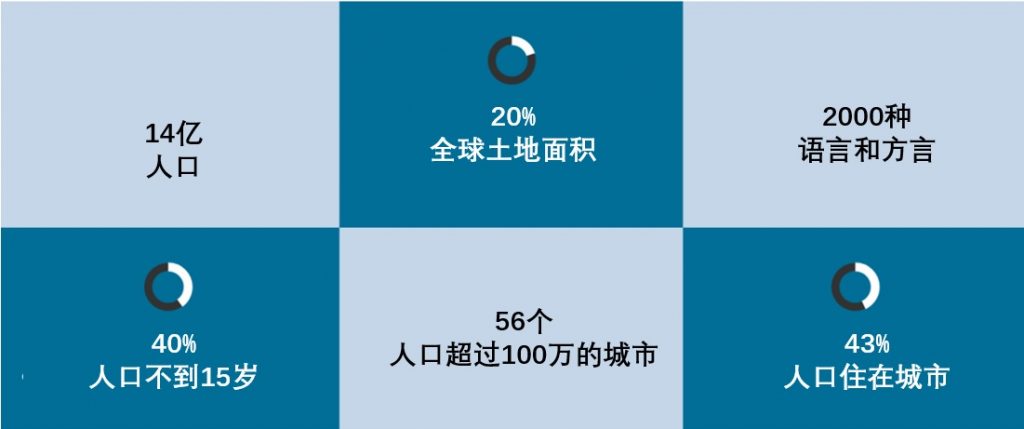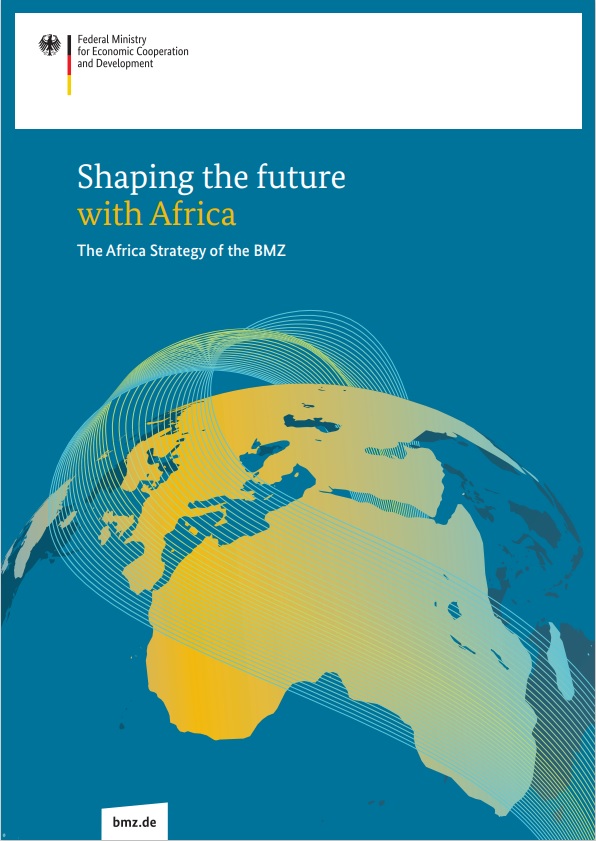Author: Zeng Lu
The German Federal Ministry for Economic Cooperation and Development released the new "Africa Strategy: Shaping the Future in Cooperation with Africa" to strengthen cooperation with African countries in areas such as economic just transformation, job creation for young people, and gender equality.
Total words2600About6minutes
In January 2023, the German Federal Ministry for Economic Cooperation and Development (BMZ) released the new "Africa Strategy: Shaping the Future with Africa". The new strategy proposes that Germany and African partner countries will cooperate in priority areas such as a just economic transition, decent job creation for Africa's young population and gender equality. BMZ also plans to strengthen collaboration with European and multilateral institutions to expand its influence. The new strategy follows a six-month consultation period between BMZ and representatives of governments, business, civil society, academia and youth in Europe and Africa.
What priorities are anchored in the New Africa Strategy?
The New Africa Strategy sets three goals: one is to adopt a structural policy approach to help the African continent realize its great potential and strengthen its resilience while achieving the development goals of the AU and its member states; the other is to work with African partners to achieve global transformation , to provide a dignified and safe life for all in a good environment; the third is to unite and cooperate in Europe and Africa in crisis.
Six figures about Africa

The new strategy focuses more on social, environmental dimensions and a female perspective. This change runs through the new strategysix key themes.
Sustainable Economic Development, Jobs and ProsperityAims to drive a just economic transition that combines protection of livelihoods, economic prosperity, social justice and creation of decent jobs. African countries are also facing enormous opportunities and challenges brought about by unprecedented population growth, and need to create 25 million new job opportunities every year. A just economic transition requires consistent consideration of economic, ecological and social dimensions of development. The Federal Ministry of Economic Cooperation and Development hopes to use structural policies to increase local added value, accelerate the political and economic integration of the African continent, integrate it fairly into global trade relations, and shape responsible global supply chains.
Overcoming poverty and hunger and building social protectionAims to transform agriculture and food systems to enhance long-term food security. Extending social protection can also help reduce poverty and inequality. Africa has nearly 60% of undeveloped agricultural land in the world, but some African countries lack policy support for agriculture, and agricultural productivity needs to be improved. Many African countries rely on food imports. The food crisis triggered by the Russia-Ukraine conflict reflects the fragility of Africa's food security, and climate change has brought new challenges. The Federal Ministry for Economic Cooperation and Development is committed to promoting far-reaching transformations of agriculture and food systems in order to enhance long-term food security and strengthen resilience. It also strengthens social protection to make vulnerable people more resilient in the face of poverty, inequality and crisis.
Hygiene and Epidemic PreventionIt aims to establish a sound basic health system and support the development of medical production capacity, especially to support the production of vaccines. Since 2000, life expectancy in African countries has increased by nearly 10 years, and the incidence of AIDS has also dropped significantly. African countries and regional institutions have also demonstrated innovation and strength during the COVID-19 pandemic. Yet four out of five people in Africa do not have access to adequate and affordable basic health care. Sub-Saharan Africa has the highest maternal mortality rate in the world, and the new crown epidemic has highlighted the fragility of the health system in Africa. The Federal Ministry for Economic Cooperation and Development conducts funding and strategic activities in Africa within multilateral frameworks such as Gavi, the Global Fund to Fight AIDS, Tuberculosis and Malaria (Global Fund) and the United Nations Population Fund (UNFPA).
Feminist Development Policy and Gender EqualityAims to overcome the root causes of inequality and discrimination against women and girls and improve women's rights, representation and access to resources. African women and girls have far less access to opportunities than men in many social, economic and political spheres. In many African countries, women have less access to a good education and are overrepresented in the informal sector. These inequalities negatively impact women's and girls' well-being, access to education and other opportunities, while hindering economic development and social progress. The Federal Ministry for Economic Cooperation and Development systematically promotes the political, social and economic participation of African women and supports their access to rights and resources.
Rule of law, democracy, human rights and good governanceAims to strengthen democratic institutions and lay the foundations for resilient societies. The AU's Agenda 2063 is committed to good governance, democracy, human rights and the rule of law. Many African countries are actively fighting corruption, illicit financial flows and strengthening democratic institutions. At the same time, some African governments are undervaluing investments in education, health or social systems, undermining the trust of investors and young people. Together with partners, the Federal Ministry for Economic Cooperation and Development supports African countries to strengthen equal participation, improve administrative efficiency, etc., and lay the foundation for resilient societies.
peace and securityAims to reduce and avoid the root causes of conflict through an integrated humanitarian assistance, development cooperation and peacebuilding approach. Peace and security are key political priorities of the AU's Agenda 2063. The AU has established an active peace and security architecture on the African continent and has curbed violent conflicts in Africa through various mechanisms. Yet about a third of countries in sub-Saharan Africa are facing armed conflict, and terrorist attacks are multiplying. Natural resources, land use, border conflicts, economic prospects, food and water crises, extremism and other factors intertwine to pose the risk of conflict. The Federal Ministry for Economic Cooperation and Development works with African partners using an integrated approach of humanitarian aid, development cooperation and peacebuilding.
What does the new strategy mean?
Respond to world changes
The new "Africa Strategy" responds to the global turmoil caused by the new crown epidemic and the conflict between Russia and Ukraine, and takes into account long-term structural transformation. Poverty and inequality facing mankind, shared prosperity that takes into account both society and ecology, climate change, epidemics, conflicts between Russia and Ukraine, and other geopolitical and nationalist challenges have had a huge impact on existing international rules and global governance. Geopolitics, the new crown epidemic, population and economic turmoil, and the food and energy crises triggered by the Russia-Ukraine conflict have impacted Africa's development achievements and affected Africa's future. The Federal Ministry for Economic Cooperation and Development regards African countries as key partners in overcoming global challenges, and believes that Africa's development will shape the 21st century and affect the future of Germany and Europe. The new strategy reflects Germany's new thinking on developing cooperation with Africa under the current situation.
return to structural policy
The new Africa Strategy is a throwback to the 1998 "global structural policy aimed at improving the economic, social, ecological and political conditions of developing countries" of the German red-green federal government. A commitment to global debt management is the top priority of the new strategy and global structural policies. Germany emphasizes, through multilateral cooperation, the shared responsibility to achieve global structural policies. The new strategy will expand collaboration with European and African institutions and bring bilateral projects more into the multilateral agenda for transformative impact. The Federal Ministry for Economic Cooperation and Development said it would address asymmetries in trade and agricultural policies and advocated for a greater voice for African countries and the AU in multilateral forums.
Expand cooperation and alliances
The new "Africa Strategy" emphasizes expanding alliances and cooperation rather than going it alone. The Federal Ministry for Economic Cooperation and Development establishes new strategic alliances such as the Climate and Development Partnership and mobilizes private investment. The "Africa Strategy" provides a new starting point for the German government to promote interdepartmental cooperation with Africa. The new strategy commits to strengthen collaboration with other ministries and the EU through mechanisms such as the African Inter-Ministerial Steering Committee, European teams, joint project programming and the Global Gateway Africa-Europe Investment Package. In addition, the new strategy echoes the public health and multilateralism commitments made at the 2022 EU-African Union Summit, and responds more specifically to Africa's development needs.
Emphasis on respect and reciprocity
Mutual respect and reciprocity are the basis of cooperation. The new strategy takes the realization of the "Agenda 2063" formulated by the AU and its member states as an important goal. effect. The new strategy's in-depth reflection on the consequences of the colonial era is an important basis for equal and honest dialogue. At the same time, the new strategy rejects the paternalistic tendencies of traditional development policy, responding to recent controversy at the United Nations General Assembly over votes by African states on the Russia-Ukraine conflict and discussions on fossil fuel use. The new African strategy shows that while expressing its own values and interests, Germany pays more attention to listening to the interests of African countries, in order to better build trust and partnership with Africa in the new multipolar world order.
References

